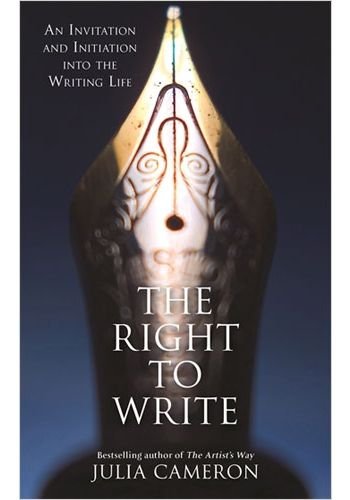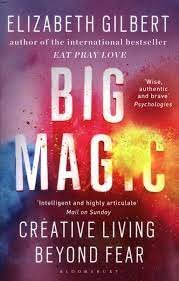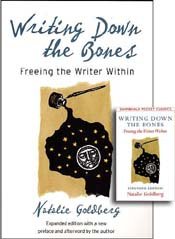Inspiration and Motivation
Claire Hennessy | adapted from a piece originally published at writing.ie
For the purposes of this piece (and possibly life), ‘inspiration’ is about getting ideas. ‘Motivation’ is getting off your arse to turn them into something.
It’s possibly a false dichotomy, because creative life (and, again, life full-stop) is messier than it seems. But I do think the two are often linked in popular consciousness. We talk about ‘writer’s block’ but don’t delve into the particular strands of this insidious virus: the difference between ‘I don’t know what to write’ and ‘I don’t know what to write next’.
There are certainly similarities. Both involve a lack of confidence – because, shockingly, once you get past your fourth-class/Junior Cert/Leaving Cert teacher praising your essay-writing skills (or bemoaning a lack of same), most people don’t care that you want to write (and want to be thought good at it). You need to find some kind of internal validation (or a supportive friend who you’ll buy lots of wine for) in order to keep going.
And both involve perfectionism – which contrary to popular belief is not an admirable trait in life (or to cite in job interviews as your ‘one flaw’, confident that it isn’t really seen as such). Perfectionism is toxic and not something to be valorised. Perfectionism is antithetical to productivity, to creativity, to being human. Strive for excellence within a time limit – not perfection achieved at some indefinite point in the future.
So for both of these it’s a case of being comfortable with making a mess, with being imperfect, with playing. But sometimes that just doesn’t feel like enough, and that’s where the distinction between kinds of block becomes important.
INSPIRATION
Many writers argue that ideas are not the tricky part, the actual writing is. Others find ideas incredibly difficult, but when they come they are often beautifully formed, already en route to ‘elevator pitch’ status.
I don’t think there’s a conflict in these views. We all conceptualise ‘ideas’ differently – for some of us it’s a fragment, for others a fully-fleshed-out concept, for others again something in between. Just as we all write differently – some outlining first, some throwing themselves into a speedy first draft, some in the middle – we are all inspired differently.
If you are feeling ‘uninspired’ or ‘out of ideas’ full-stop, try some of these:
Read a poem and copy out one, just one, line you like from it. Now write for ten minutes with that as the first line and see what happens.
Go to a local café and write down everything you observe (suggestion: you might feel more comfortable doing this on a phone rather than in a notebook).
Keep a journal for a week (at least). Just write about what’s going on in your head – it doesn’t matter if it doesn’t seem ‘important’ or ‘worthy’.
Reread a book you loved ten years ago. Imagine what it would be like from another character’s perspective.
Watch a movie (new or old) and imagine what the characters were like as children.
Listen to a song that you love on repeat and start writing.
Remember: a fragment is sometimes enough. The more you write, the more ideas will come to you. Don’t worry if you don’t have the full thing in your head before you start scribbling or typing – it’s okay.
If you are feeling ‘stuck’ with an ongoing project, try some of these:
Pick a character whose voice we don’t (and won’t) hear in the finished piece. Write about things from their perspective for ten minutes.
Make a list of twenty terrible things that could happen next, and twenty amazing things that could happen next.
Imagine yourself on a talk show explaining the difficulties you had with this project. (Best to do this one in private.)
Write five ‘next lines’ and then give each five minutes to follow through on – see where they go.
Imagine this project (if not already a film) has been adapted to a movie. Imagine the movie trailer. Jot down some script notes.
MOTIVATION
So you have the ideas – or some of them – but you’re just feeling a bit, well, blah.
Welcome to the club. What you need at this stage is support and reassurance and ways to keep going.
This might come from writer-pals, or it might be something you look for yourself. In terms of motivation – versus craft info – there are three books I continually return to.
Natalie Goldberg’s WRITING DOWN THE BONES is an absolute classic – it makes you feel like a writer. It reassures you. It’s all good, she soothes. There’s some zen stuff in here that won’t appeal to everyone but honestly, it’s not overly-intrusive.
Julia Cameron’s THE RIGHT TO WRITE. Cameron is better known for THE ARTIST’S WAY, which may or may not work for you (I honestly think it’s better for visual- and other-artists than writerly-artists), but this slim collection of essays is gorgeously reassuring.
Elizabeth Gilbert’s BIG MAGIC. (Yes, that’s Gilbert of EAT PRAY LOVE, but this is her proper masterpiece.) This is a no-nonsense account of creativity that touches on the divine very occasionally but is mostly just going ‘just make the thing and don’t make a big deal of it’.
You’ll notice that these are all female authors, and American, and I think that’s a lot to do with how our society views ambition and sharing of neuroticism. (My personal experience suggests that Irish ideas of ‘notions’ impact on both men and women – hurray for equality?) Male authors are more likely to tackle the craft side of things, though if you’re looking for a general life-and-book-affirming read from one of the menfolk, Matt Haig’s REASONS TO STAY ALIVE will provide that in spades.
Sometimes we don’t need these supports when we’re writing and creating – but sometimes (oftentimes) we do. So bookmark these, and others of interest, for when you need them, and go chase after whatever gorgeous magical writing dream you have.







